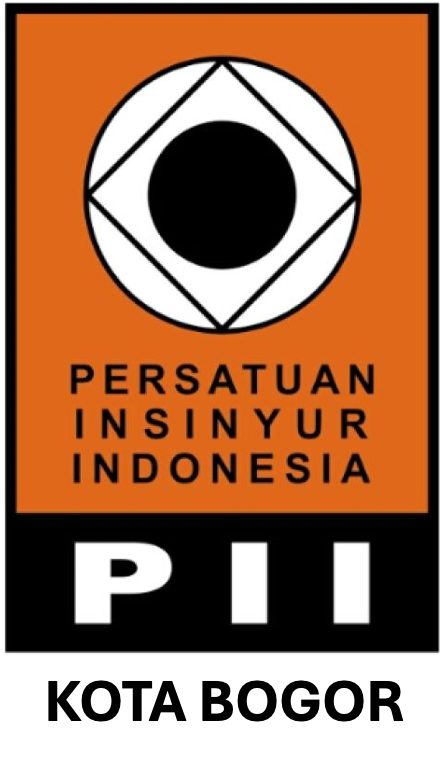The Design of A Canteen Organic Waste Management System Using Black Soldier Fly at Universitas Jambi
Abstract
Universitas Jambi adopted the Green Campus concept and joined the UI Green Metric as a commitment to environmental sustainability. One crucial step is the management of solid waste, particularly organic waste. In 2023, Universitas Jambi generated 835.7 kg of organic waste per day; however, its management at the Temporary Disposal Site remains suboptimal. This study aimed to measure the amount of organic waste from canteens in the Mendalo Campus area, evaluate the effectiveness of the Black Soldier Fly (BSF) method, and design a sustainable organic waste management system. The results show that the BSF method can reduce waste by up to 77.5%, with a Waste Reduction Index (WRI) of 5.16% and an Efficiency Conversion Degree (ECD) of 9.15%. BSF larvae have proven to be effective in processing various types of organic waste, making this bioconversion technique widely applicable at the Universitas Jambi. The proposed management system includes waste collection from sources, transportation, and processing using BSF to enhance the efficiency of organic waste management.
Downloads
References
[2] Mardiana S, Berthanilla R, Marthalena M, Rasyid MR. Peningkatan Pengetahuan Masyarakat Mengenai Pengelolaan Pembuangan dan Pemilahan Sampah Rumah Tangga di Kelurahan Kaligandu Kota Serang. Bantenese - Jurnal Pengabdian Masyarakat. 2019; 1(2): 79–88.
[3] Indariyanti N, Barades E. Evaluasi Biomassa dan Kandungan Nutrisi Magot (Hermetia illucens) Pada Media Budidaya yang Berbeda. Seminar Nasional Pengembangan Teknologi Pertanian. Politeknik Negeri Lampung, Indonesia, 08 Oktober 2018.
[4] Yuwono AS, Mentari PD. Penggunaan Larva (Maggot) Black Soldier Fly (BSF) Dalam Pengolahan Limbah Organik. Bogor. SEAMEO BIOTROP, 2018. 1–102.
[5] Roberts A, Solomon E, Lobâo M, Dom M. Bioconversion of Fermented Kitchen Waste or Sweet Potato Roots by Black Soldier Fly (Hermetia illucens) Larvae in an Open Shed Environment . Journal of South Pacific Agriculture. 2019; 22 :1–9.
[6] Ramadhan I, Arifin A, Jumiati J. Efisiensi Penggunaan Larva Black Soldier Fly (Hermetia Illucens) Untuk Mendekomposisi Sampah Organik Dengan Variasi Bahan Fermentasi. Jurnal Ilmu Lingkungan. 2022; 20(4): 717–725.
[7] Mardhotillah RR, Rasyid RA. Pengaruh Kualitas Pelayanan Terhadap Kepuasan Mahasiswa Di PTS X Surabaya. Accounting and Management Journal. 2019; 3(2): 105–112.
[8] Ridwan, Widyawati N, Putri Aisyah Idris M. Pengolahan Sampah Organik Perkotaan Melalui Budidaya Maggot. SNKP-II: Seminar Nasional Karya Pengabdian, Ke-II. Universitas Janabadra, Indonesia, 2021.
[9] Firdausy MA, Mizwar A, Firmansyah M, Fazriansyah M. Pemanfaatan Larva Black Soldier Fly (Hermetia Illucens) Sebagai Pereduksi Sampah Organik Dengan Variasi Jenis Sampah Dan Frekuensi Feeding. Jukung (Jurnal Teknik Lingkungan). 2021; 7(2): 120–30.
[10] Oktavia E, Rosariawari F. Rancangan Unit Pengembangbiakan Black Soldier Fly (Bsf) Sebagai Alternatif Biokonversi Sampah Organik Rumah Tangga (Review). Jurnal EnviroUS. 2020; 1(1): 65–74.
[11] Afia ST. M, Evy H, Candra Dwi RW. Teknologi Black Soldier Fly (BSF) dengan Variasi Pakan Sampah Organik. Jurnal Enviro. 2022;1(1): 1-10.
[12] Murdowo D, Purnomo AD, Saputra TE, Fadila AN, Abadan AQ. Perancangan Fasilitas Pengolahan Sampah Organik Dengan Metode Lalat Black Soldier Fly (BSF). Jurnal Abdimas Berdaya: Jurnal Pembelajaran, Pemberdayaan dan Pengabdian Masyarakat. 2020; 3(02): 82-91.
Copyright (c) 2025 Jurnal Teknik Sipil dan Lingkungan

This work is licensed under a Creative Commons Attribution-NonCommercial-NoDerivatives 4.0 International License.
Authors who publish with Jurnal Teknik Sipil dan Lingkungan, JSIL agree to the following terms:
a. Authors retain copyright and grant the journal right of first publication with the work simultaneously licensed under a Creative Commons Attribution License that allows others to share the work with an acknowledgment of the work's authorship and initial publication in this journal.
b. Authors are able to enter into separate, additional contractual arrangements for the non-exclusive distribution of the journal's published version of the work (e.g., post it to an institutional repository or publish it in a book), with an acknowledgment of its initial publication in this journal.
c. Authors are permitted and encouraged to post their work online (e.g., in institutional repositories or on their website) prior to and during the submission process, as it can lead to productive exchanges, as well as earlier and greater citation of published work (See The Effect of Open Access).











